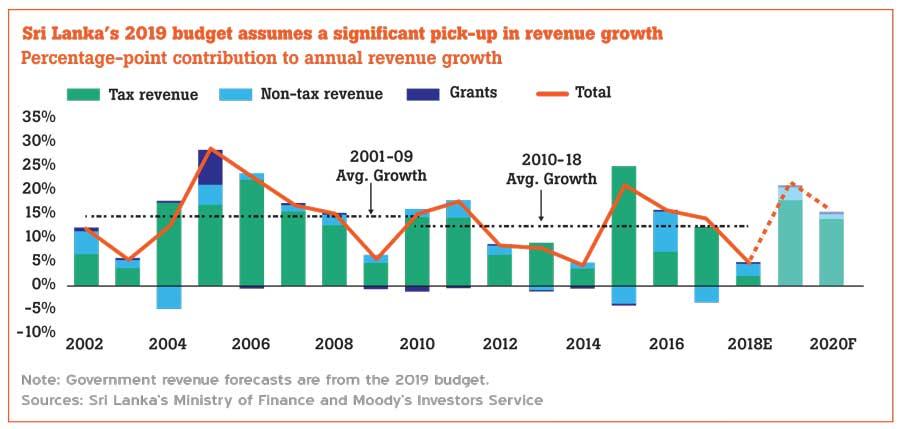12 Mar 2019 - {{hitsCtrl.values.hits}}

Sri Lanka government’s efforts for fiscal consolidation will be challenging, given its ambitious revenue targets and election spending—which are difficult to do without—and their success will largely depend on policy effectiveness and faster economic growth, according to Moody’s Investors Services (Moody’s).
Issuing a sovereign credit outlook on the back of last week’s budget, Moody’s acknowledged the government’s commitment towards revenue-led fiscal consolidation and debt reduction— both of which were considered credit positive.
“After a fiscal deficit of 5.3 percent of GDP in 2018, the government aims to reduce it to 4.4 percent of GDP in 2019 and to 3.5 percent in 2020, in line with its International Monetary Fund programme targets.
However, achieving its deficit and debt targets will be challenging without a significant increase in fiscal policy effectiveness and faster GDP growth,” the rating agency said.
Finance Minister Mangala Samaraweera presented Budget 2019 on March 5, after a four-month delay, due to the political crisis that was triggered on October 26 with the sacking of Prime Minister Ranil Wickremesinghe by President Maithripala Sirisena.
This led Moody’s to downgrade Sri Lankan sovereign rating by a notch to B2 from B1, citing heightened debt refinancing risks and a slow pace of the fiscal consolidation process, due to political uncertainty.
Budget 2019 did not provide surprises and broadly stayed the course set by Minister Samaraweera’s previous budget and closely resembled the government’s social-market economy policy tilt.“Sri Lanka’s ambitious fiscal consolidation targets – when the country has not had a fiscal deficit below 5.0 percent since at least 1990 – will rely on effective tax collection and administration and increases in some taxes,” Moody’s stated.
15 Nov 2024 3 hours ago
15 Nov 2024 4 hours ago
15 Nov 2024 5 hours ago
15 Nov 2024 6 hours ago
15 Nov 2024 6 hours ago